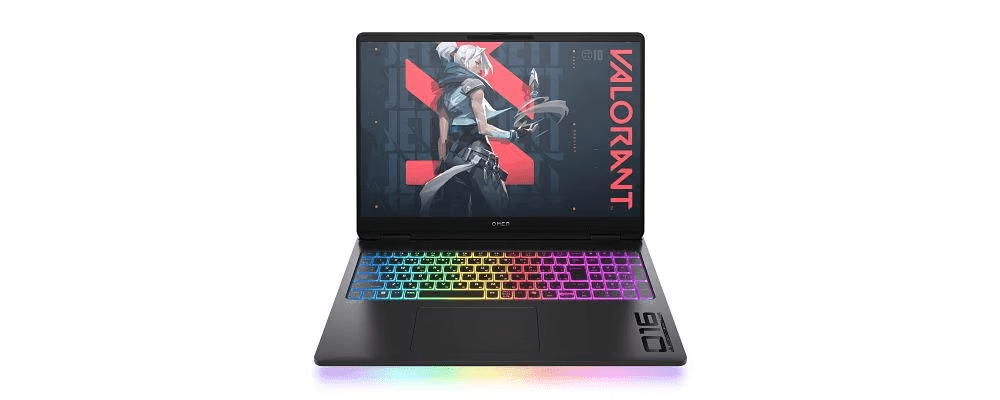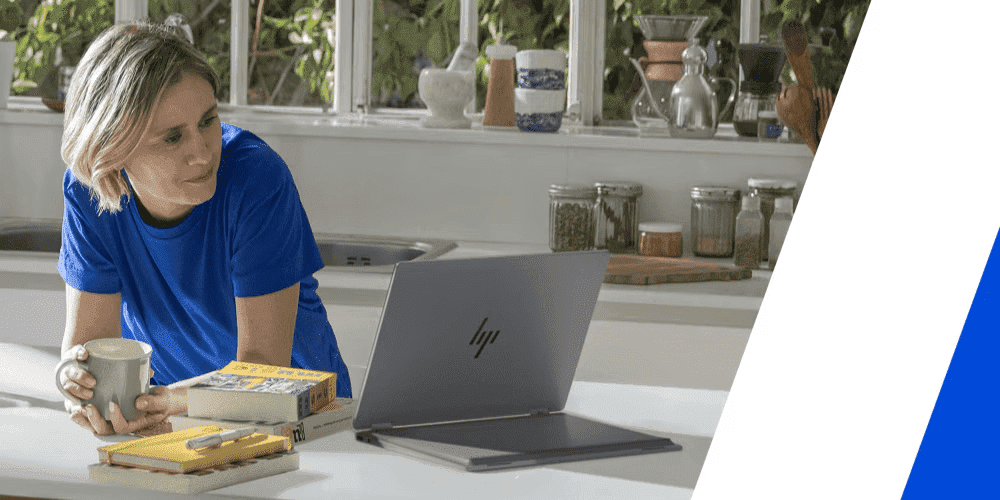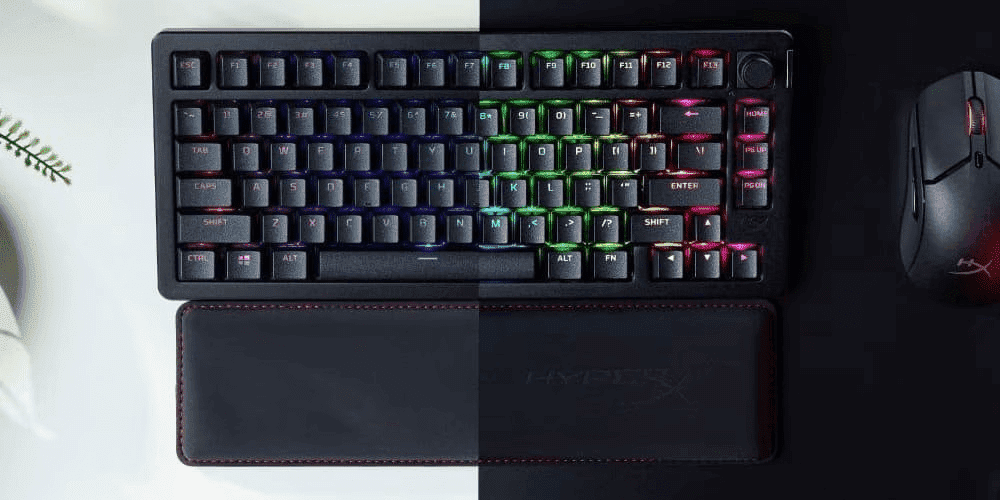Thank you for visiting the AUSTRALIA HP Store
-
Contact Us
CONTACT USCall us
- Sales
- 1300 540 516
- Technical support
- 13 23 47
Exc. public holidays
Chat with us- Our specialist are here to help
- Live Product Demo
- Sales
- 61288061500 (WhatsApp)
-

- Post Sales
- 61288061700(WhatsApp)
Exc. public holidays
Live product demo
Submit feedback We value your opinion! - My Account
Search
Chromebooks vs Laptops - What are they and their uses


If you're looking for a new portable computer, we offer Chromebooks as part of our extensive laptop range. But what is a Chromebook, and could it be the perfect choice for you? Or would a traditional Windows-based laptop better suit your application?
This article will look at the pros and cons of a Chromebook vs laptops available from the HP store to help you make the right choice.
This article will look at the pros and cons of a Chromebook vs laptops available from the HP store to help you make the right choice.
Contents
What is a Chromebook?
A Chromebook is a laptop using the Chrome operating system (OS) that Google developed and designed. It focuses on online operations, so the main difference from a traditional laptop is that a Chromebook will have minimal internal memory storage, instead relying on cloud-based storage.
The original conception of Chromebooks was as a lower-priced laptop option for browsing. However, with improvements in the wide availability of high-speed internet connections, Chromebooks can now handle more complex processing tasks. This capability opens the way for Chromebook to be a practical option for a broad range of applications beyond simple internet-based browsing and messaging.
The latest Chromebooks now include enough processing performance to handle offline tasks where the internet is unavailable. This ability is thanks to the development of Chrome OS and its memory management functions. In addition, this ability reduces the reliance on access to network-connected storage for processing.
Chromebooks are available in various options, from basic browser models to high-performance models in standard and convertible formats. Look at the HP store to see the latest HP Chromebook options.
The original conception of Chromebooks was as a lower-priced laptop option for browsing. However, with improvements in the wide availability of high-speed internet connections, Chromebooks can now handle more complex processing tasks. This capability opens the way for Chromebook to be a practical option for a broad range of applications beyond simple internet-based browsing and messaging.
The latest Chromebooks now include enough processing performance to handle offline tasks where the internet is unavailable. This ability is thanks to the development of Chrome OS and its memory management functions. In addition, this ability reduces the reliance on access to network-connected storage for processing.
Chromebooks are available in various options, from basic browser models to high-performance models in standard and convertible formats. Look at the HP store to see the latest HP Chromebook options.
Chromebook applications
Chromebooks are ideal for students due to their simplicity and ease of configuration, where a school has adopted Google's toolset for students to produce their work for teachers to assess.
Chromebooks are available with high-quality, high-definition (HD) screens, making your Chromebook perfect for home entertainment. In addition, Chrome OS is great for streaming content over the internet. This feature makes them ideal for streaming TV shows, movies and games with basic graphical processing requirements that don't need a separate graphics card.
Chromebooks running Chrome OS can offer you the ability to install games and other applications available for the Android operating system from the Google Play Store.
Chromebooks are available with high-quality, high-definition (HD) screens, making your Chromebook perfect for home entertainment. In addition, Chrome OS is great for streaming content over the internet. This feature makes them ideal for streaming TV shows, movies and games with basic graphical processing requirements that don't need a separate graphics card.
Chromebooks running Chrome OS can offer you the ability to install games and other applications available for the Android operating system from the Google Play Store.
Chromebook advantages
The Chromebook design focuses on affordability, so they are typically available for a lower cost than a Windows-based laptop with equivalent features and performance.
The affordability of Chromebooks combined with the durability and reliability of HP's products means this device is great for regular use in environments where you may think twice about taking an expensive laptop.
Chromebooks have a more efficient power profile than an equivalent Windows-based laptop, with the benefit of lower power consumption and less heat generation.
Chrome OS offers memory management benefits, so a Chromebook will require less internal memory than an equivalent Windows-based laptop and will be less likely to require a memory upgrade in the future.
The operating system also works seamlessly with Google's storage and productivity applications suite, so accessing your Google Drive or using Google Docs, Sheets, or Slides is simpler and more convenient.
The affordability of Chromebooks combined with the durability and reliability of HP's products means this device is great for regular use in environments where you may think twice about taking an expensive laptop.
Chromebooks have a more efficient power profile than an equivalent Windows-based laptop, with the benefit of lower power consumption and less heat generation.
- Lower power needs mean the Chromebook will be cheaper to operate over its lifetime.
- Lower power also means that Chromebooks have a significantly longer battery life than their Windows-based laptop equivalents, perfect for use on long journeys.
- Lower waste heat means the Chromebook will require less thermal management in terms of heat sinks, fans, and other cooling technologies. This benefit reduces the complexity and cost, and lower heat improves reliability.
Chrome OS offers memory management benefits, so a Chromebook will require less internal memory than an equivalent Windows-based laptop and will be less likely to require a memory upgrade in the future.
The operating system also works seamlessly with Google's storage and productivity applications suite, so accessing your Google Drive or using Google Docs, Sheets, or Slides is simpler and more convenient.
Laptop advantages
Chromebooks are great for some applications, but Windows-based laptops may be better for other, more demanding needs.
Laptops offer significantly better operation for local processing tasks where computational processing performance is the primary factor. Such uses include typical business workflows, creative graphical processing like video editing or 3D rendering processes and high-performance gaming. This local capability is also essential where internet connectivity isn't guaranteed.
Laptops offer significantly more local dynamic and static memory and the ability to integrate separate graphics cards, such as the NVIDIA® product range. This adaptability allows you to customise your laptop, optimising the performance to match your intended application.
Laptops are available in a significantly more comprehensive range of options regarding processor type, storage, graphical processing, screen size and resolution, battery life, case formats, styling and wired network connections.
Laptops offer greater flexibility regarding the applications and browsers you can use, with Windows supporting a broader range than Chrome OS.
Windows-based laptops also benefit from Microsoft's operating system support, which tends to outlast the device. By contrast, Google will only support devices manufactured by other companies for a set number of years, typically seven or eight. After this point, the Chrome OS and associated applications, such as the browser, will not be supported.
This cessation of support includes the end of any security updates for the operating system, making your device vulnerable to hackers. This risk is particularly important if you use the Chromebook for work, home banking or other financial management activities.
This software support ceases at the device's Auto Update Expiration (AUE) date. Google published a list of these dates for each Chromebook model.
Laptops offer significantly better operation for local processing tasks where computational processing performance is the primary factor. Such uses include typical business workflows, creative graphical processing like video editing or 3D rendering processes and high-performance gaming. This local capability is also essential where internet connectivity isn't guaranteed.
Laptops offer significantly more local dynamic and static memory and the ability to integrate separate graphics cards, such as the NVIDIA® product range. This adaptability allows you to customise your laptop, optimising the performance to match your intended application.
Laptops are available in a significantly more comprehensive range of options regarding processor type, storage, graphical processing, screen size and resolution, battery life, case formats, styling and wired network connections.
Laptops offer greater flexibility regarding the applications and browsers you can use, with Windows supporting a broader range than Chrome OS.
Windows-based laptops also benefit from Microsoft's operating system support, which tends to outlast the device. By contrast, Google will only support devices manufactured by other companies for a set number of years, typically seven or eight. After this point, the Chrome OS and associated applications, such as the browser, will not be supported.
This cessation of support includes the end of any security updates for the operating system, making your device vulnerable to hackers. This risk is particularly important if you use the Chromebook for work, home banking or other financial management activities.
This software support ceases at the device's Auto Update Expiration (AUE) date. Google published a list of these dates for each Chromebook model.
HP Chromebooks
The Chromebook x360 Laptop 14b-cb0000TU is powered by the Intel® Pentium® Silver N6000 multi-core processor that can run at burst frequencies up to 3.3 GHz. This processor includes 4MB of cache memory in addition to 8GB of RAM.
The local storage is 128GB of reliable Embedded Multimedia Card (eMMC) to support access to 100GB cloud-based Google One™ storage on subscription.
The most striking feature of the Chrome book is the 14-inch full high definition (FHD) multitouch-enabled screen powered by the in-built Intel UHD Graphics system.
This convertible 2-in-1 device offers a full 360-degree rotation to transform between laptop and tablet modes and weighs just 1.62 kg.
The local storage is 128GB of reliable Embedded Multimedia Card (eMMC) to support access to 100GB cloud-based Google One™ storage on subscription.
The most striking feature of the Chrome book is the 14-inch full high definition (FHD) multitouch-enabled screen powered by the in-built Intel UHD Graphics system.
This convertible 2-in-1 device offers a full 360-degree rotation to transform between laptop and tablet modes and weighs just 1.62 kg.
Chromebook and laptop applications
Chromebook can run Microsoft applications, including the Office suite, through the Chrome browser making the Chromebook compatible with Windows-based laptops. This feature allows you to edit documents, create spreadsheets, produce presentations and work collaboratively using a mix of Chromebook and laptop devices.
Chromebook can run any game that supports streaming, including some of the latest immersive multi-player games, as long as your computer meets the minimum system requirements for that game. In addition, you can use your Chromebook to play with players using Windows-based laptops.
Chromebooks can work and play offline, where applications support storing local copies when an internet connection is unavailable. In addition, the latest Chromebooks have sufficient local storage to handle most everyday computing tasks offline, making them comparable with Windows-based laptops.
If you have both a Chromebook and a Windows-based laptop, you can use the Chromebook to run laptop applications remotely. The Chrome remote desktop application allows you to access programs on your laptop as long as it's running and both devices have internet connectivity.
Before using this option, consider the security implications of the laptop remaining on when you're not present and potentially sensitive information passing between devices over the internet.
Chromebook can run any game that supports streaming, including some of the latest immersive multi-player games, as long as your computer meets the minimum system requirements for that game. In addition, you can use your Chromebook to play with players using Windows-based laptops.
Chromebooks can work and play offline, where applications support storing local copies when an internet connection is unavailable. In addition, the latest Chromebooks have sufficient local storage to handle most everyday computing tasks offline, making them comparable with Windows-based laptops.
If you have both a Chromebook and a Windows-based laptop, you can use the Chromebook to run laptop applications remotely. The Chrome remote desktop application allows you to access programs on your laptop as long as it's running and both devices have internet connectivity.
Before using this option, consider the security implications of the laptop remaining on when you're not present and potentially sensitive information passing between devices over the internet.
Summary
Chromebooks are an excellent option for anyone looking for an economical mobile computing device for everyday applications where they do not need the standard Windows operating system.
The Chrome OS offers a terrific alternative for basic computer needs, with the added advantages of being quicker, easy to set up and providing access to the same applications as an Android device.
Chromebooks are primarily intended for online use, trading local storage components for cloud-based solutions to reduce cost, weight and power consumption. However, you can use the latest Chromebooks offline for everyday applications.
While Chromebooks may not match Windows-based laptops for intensive business and gaming applications, they are an excellent option for students, families and general mobile users.
About the Author: Stephen Mash is a contributing writer for HP Tech Takes. Stephen is a UK-based freelance technology writer with a cybersecurity and risk management background.
The Chrome OS offers a terrific alternative for basic computer needs, with the added advantages of being quicker, easy to set up and providing access to the same applications as an Android device.
Chromebooks are primarily intended for online use, trading local storage components for cloud-based solutions to reduce cost, weight and power consumption. However, you can use the latest Chromebooks offline for everyday applications.
While Chromebooks may not match Windows-based laptops for intensive business and gaming applications, they are an excellent option for students, families and general mobile users.
About the Author: Stephen Mash is a contributing writer for HP Tech Takes. Stephen is a UK-based freelance technology writer with a cybersecurity and risk management background.
Products purchased through this store are sold and fulfilled by Ingram Micro Pty Limited
CONTACT US
Call us
- Sales
- 1300 540 516
- Technical support
- 13 23 47
Exc. public holidays
Chat with us
- Our specialist are here to help
- Live Product Demo
- Sales
- 61288061500 (WhatsApp)
-

- Post Sales
- 61288061700(WhatsApp)
Exc. public holidays
Live product demo
Submit feedback
We value your opinion!








